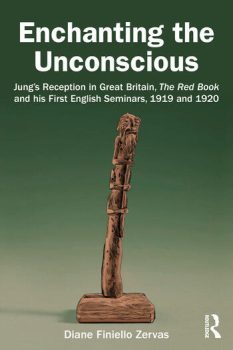This original volume explores Jung’s earliest English seminars, held in 1919 and 1920, in relation to the impact of Liber Novus and The Red Book and his new exoteric and esoteric concepts of analytical psychology created during the Great War.
The groundbreaking seminars presented in the book yield important insights about Jung’s application of analytical methods and the psychological concepts he developed in response to his confrontation with the unconscious, recorded in Liber Novus and in his Collected Papers on Analytical Psychology, edited by Dr. Constance Long, one of his first English analysands and colleagues. The English seminars illuminate the extent to which Jung shared, or alluded to, material from Liber Novus and The Red Book, supported by evidence from Long’s journal which contains a wealth of additional material about Jung’s method of supervision, views on transference, her own analysis, and the eventual break-up of the London group.
Enchanting the Unconscious is an important and timeless contribution to Jungian history and our understanding of early formulations of Jung’s conceptual model of the psyche, making it of great interest to Jungian analysts, analytical psychologists, students of Jungian history, and general readers interested in exploring Jung’s earliest teaching seminars previously undocumented or distorted by hearsay.
Table of Contents
Part 1 1. Jung: From Burghölzli to London, 1902-1913 2. Jung: From Munich to London, September 1913-August 1914 3. From the Mythopoetic to Analytical Psychology: Jung, 1914-1918 4. Jung’s Concept of the Neurosis Related to Shell-Shock: Eder and Nicoll’s Contributions to the British Debates on the War Neuroses, 1915-1918 Part 2 5. ‘Enchanting the Unconscious’: Jung in England, 1919 6. ‘As Befits a God’: Rebirth, Symbol, and the Invisible Church: The Sennen Cove Seminar, 1920 7. From Master to Disillusionment: Jung’s Analytic Relationship with Constance Long and Maurice Nicoll, 1919-1920 8. Jung’s Transmission of Esoteric Knowledge and Imagery: The First English Seminars and Beyond 9. ‘May Each Go His Own Way’: The Dissolution of the First London Group, November 1920-1923 Appendices

